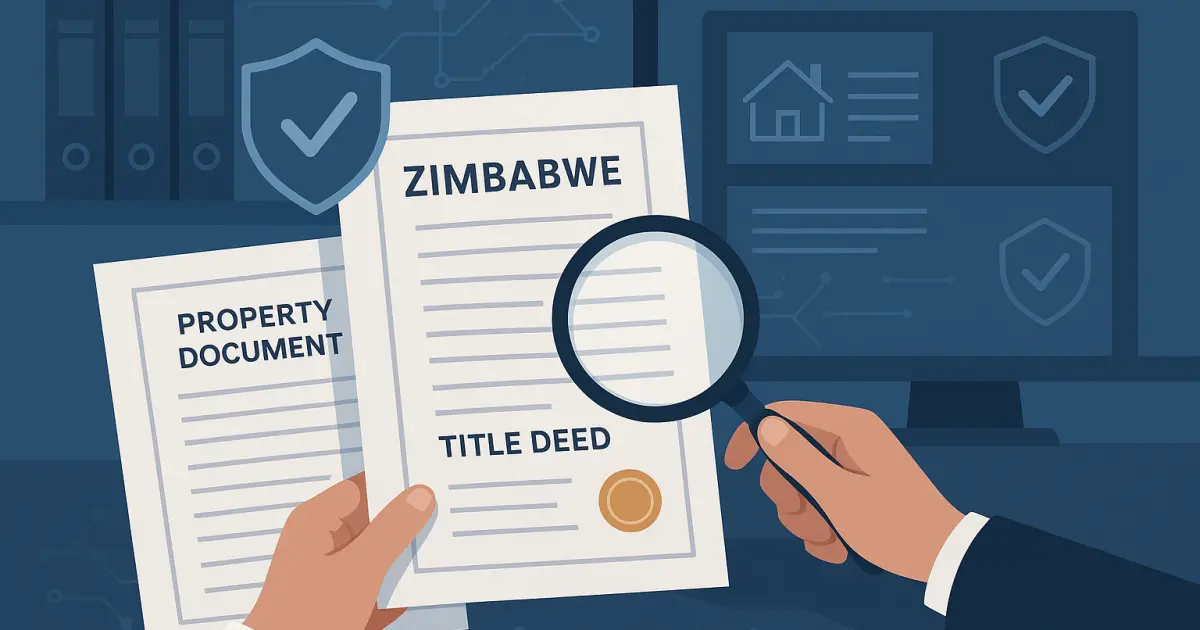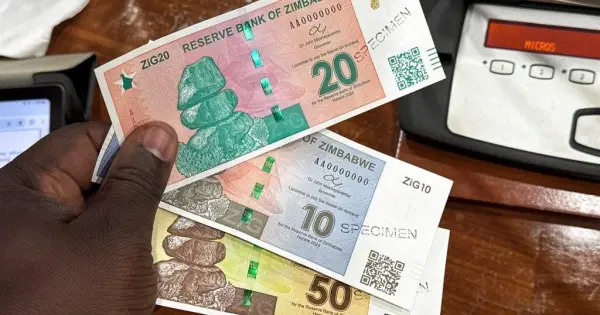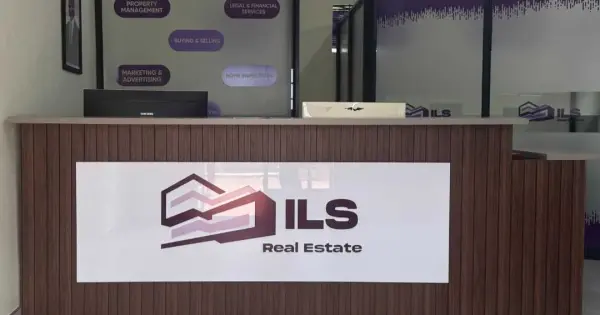Property fraud is a serious and ever-looming threat in Zimbabwe. Fake agents operate across the country. Double sales happen regularly. Bogus deeds circulate in the market. People lose their life savings to scams they never saw coming.
Priscilla Nyatsanga has seen it all. As a practicing lawyer, Partner and Conveyancer at Titan Law, she's dedicated her career to protecting people from these devastating losses. In an exclusive interview with Propertybook, Zimbabwe's leading real estate website, her message was crystal clear: "Don't take shortcuts—do things by the book to safeguard your assets."
With fake title deeds flooding the market, Zimbabwe's sorely needed digital transformation of property records has arrived. Here’s a reminder of what every property owner must know to protect the biggest purchase they’ll make in their lifetime.
Why Everyone NEEDS a Conveyancer
What exactly does a conveyancer do?
Most people don't really know the role of a conveyancer.
A conveyancer is a registered legal practitioner with an additional qualification in conveyancing: which involves attending to the transfer of immovable properties and also the registration of securities amongst other reserved work.
They don't just handle paperwork. They are your shield against fraud. They physically inspect records at the deeds registry, verifying the ownership chain of the property, its size, zoning restrictions all known as the due diligence exercise, all prior to a purchase. They also negotiate fair terms in the agreement ensuring that the agreement is prepared in the best interests of both parties. They are therefore specially trained to spot red flags an ordinary purchaser would never notice.
This is why, according to Nyatsanga, a conveyancer needs to get involved from the moment that you either identify a property you want to purchase, or as a seller, from the moment you decide to sell the property.
“The average eye is not trained to pick up the subtleties of property documentation,” Nyatsanga explains. “Even if one notices what appears to be an irregularity on a Deed, without the requisite legal and technical expertise, the underlying issues may go undetected.”
That’s why it is always advisable to engage an expert legal practitioner from the onset. “Property transactions are high-value and errors or oversights can have costly, long-term consequences,” she warns.
"As the Seller’s representatives, we always begin by conducting a Deeds Office search to confirm that the information provided by the client aligns with the official records,” Nyatsanga notes. “From the buyer’s perspective, this means that once you engage the seller’s conveyancer, much of the due diligence on title is already safeguarded. The process is designed to ensure accuracy and reliability, reducing the risk of hidden surprises later on.”
How much does a conveyancer charge?
“All lawyers are regulated by the Law Society, and we operate under a tariff system that guides how we much we charge for a transfer,” Nyatsanga explains. “For conveyancing, the tariff is set at 3 percent of the market value of the property. Beyond that, we also apply an hourly rate for any ancillary work related to the transfer, which fee will vary according to the conveyancer’s years of experience.”
She goes on to explain how every transaction is different. “Some may require engaging with the Environmental Management Agency (EMA),” she says, while, “others might involve the Surveyor General’s Office, or liaising with local planning authorities, at times out of town, all costs which will have to be borne by the parties.”
Most successful property transactions involve conveyancers from the start. They catch problems before they become disasters. They ensure every document is legitimate. They protect your investment.
Considering that buying a property is usually the biggest investment people make in their lives, there is no price tag one can put on due diligence.
The Real Truth About FAKE Title Deeds
Fake title deeds do exist and Nyatsanga has encountered them in her practice.
“I’ve only come across one case where it turned out to be an actual fake deed,” she recalls. “In that instance, we had to immediately notify the police and formally alert the Registrar of Deeds about the fraudulent document.”
The troubling part, she cautions, is that most people cannot recognize a forgery. “On the face of it, a deed can look perfectly legitimate,” Nyatsanga explains. “But the only reliable way to verify authenticity is to physically inspect the records at the Deeds Registry, and, if necessary, cross-check the diagrams with the Surveyor General’s Office.”
What can you do if you discover your deed is fake?
The financial stakes are enormous. Property purchases represent most people's life savings. The fraudsters know this and target people who try to cut corners, skip proper verification, or handle transactions without professional help.
The brutal truth is that if you get scammed, getting your money back is incredibly difficult and expensive. Prevention is your greatest protection.
If you do discover that your deed is a fake, the recovery process is complex and expensive and will often involve the institution of civil proceedings in a court with competent jurisdiction.
Nyatsanga explains: "The first step will be to formally alert the Registrar of Deeds about the fraudulent document and then to report the matter to the police for investigation, since forgery and fraud constitute criminal offenses under the Criminal Law (Codification and Reform) Act. It is also wise to always retain copies of the suspect deed, correspondence, and any supporting documentation. All documents and communications will assist in the investigation process.”
What do you do if you lose or misplace your title deeds?
“People and companies misplace deeds all the time,” Nyatsanga observes.
“In Zimbabwe, lost or destroyed property deeds can be replaced through a legal process managed by a registered conveyancer. The process involves submitting a sworn affidavit to the Registrar of Deeds, publicly advertising the application in a local newspaper and the Government Gazette for 14 days and providing proof of the advertisements. The affidavit must describe the property, explain how the deed was lost or damaged and declare that the deed has not been pledged or used as security.”
“Once no objections are raised, the Registrar reviews the application and, if satisfied, issues a duplicate original deed in lieu of the original.”
Cession vs Title Deeds
Not all property ownership documents carry the same legal weight. Understanding the distinction between cession agreements and title deeds can offer more clarity to a Buyer when considering the purchase of a property.
“Many disputes arise from ownership of properties through developer cessions,” Nyatsanga explains. “Unlike registered title deeds, which confer indefeasible and real rights of ownership recorded at the Deeds Registry, cession agreements are merely contractual in nature. They are not registered with the Deeds Office but are instead recorded only in the developer’s private records. As a result, the purchaser under a cession acquires weaker personal rights against the seller or developer, rather than the stronger, enforceable real rights that flow from a registered title deed.”
In contrast to cession agreements, title deeds represent absolute ownership.
Nyatsanga continues: “With title deeds, the rights and obligations are clearly defined and enforceable under the Deeds Registries Act, which makes disputes relatively straightforward to resolve before the courts. Cessions, on the other hand, are purely contractual in nature and often carry conditions or limitations imposed by the original owner or the local authority. Because they do not create real rights in property, they frequently give rise to litigation or administrative complications.”
What is a Cession?
“Cessions are essentially agreements promising the Purchaser ownership at a later stage,” Nyatsanga explains. “They are common in developments where the developer hasn’t complied with all the legal requirements to allow the issuance of registered title to property owners.”
“When it comes to developer cessions, a purchaser can only convert the cession into a registered title deed once the developer has obtained a Certificate of Compliance from the City of Harare,” Nyatsanga explains. “This certificate confirms that all conditions attached to the subdivision permit and the development permit have been satisfied, including compliance with planning, engineering and municipal requirements such as road access, drainage and utility connections.”
“Many buyers do not appreciate that a cession agreement is distinct from a title deed. They often assume they have full ownership, only to later discover that a proper title deed cannot be issued until the developer fulfils all its statutory and regulatory obligations.
Before buying, it is therefore crucial to verify the type of ownership document being offered, understand its legal limitations, and to ascertain the expected timeline for obtaining a fully registered title deed once the developer secures the Certificate of Compliance,” Nyatsanga warns.
New Securitized Title Deeds
Zimbabwe is in the process of transforming its property registration system, building on previous attempts at modernization.
Local challenges, such as inconsistent electricity supply, network connectivity issues and infrastructure limitations, previously hindered implementation. In spite of this, the government has now published new regulations aimed at digitizing and improving the existing, often flawed, physical system.
“The move to a digital registry promises significant improvements. Currently, you cannot reliably search ownership records online and yet this is public information that should be readily accessible to the public,” Nyatsanga adds. “The new digital system will ensure that all title deeds issued by the Registrar are captured electronically, making the process of verification and registration of transfer of title, faster, more transparent and more reliable for all stakeholders.”
“The Deed validation exercise will also offer the public more legal certainty when confirming ownership. The tamper-proof and digitally recorded deeds will most certainly reduce fraud and ensure that lost or stolen deeds are not misused.
Here's what every Zimbabwe property owner must know about the new title deeds law:
- Zimbabwe is moving from a traditional paper-based deeds registry to a digital system where all title deeds will be re-issued in securitised form. These new deeds will be printed on tamper-proof paper, digitally recorded and linked to an electronic database for verification.
- Property owners will be required to present their existing paper title deeds together with proof of identity. The Deeds Registry will thereafter conduct an internal verification process, checking the deed against registry records, survey diagrams and historical entries, to confirm that it was validly issued before authorising new Deed.
- Every title deed in Zimbabwe, regardless of when it was issued, will need to undergo validation, digitisation and eventual replacement. The regulations provide a 24-month window from the official commencement date within which all deeds must be validated and re-issued.
- Only registered conveyancers may handle the validation and replacement process. Property owners can therefore not approach the registry directly. This will ensure compliance with professional standards and the proper handling of the technical requirements.
- Property owners living outside Zimbabwe can still comply with the validation requirements by granting a Special Power of Attorney to a conveyancer. This legally empowers the conveyancer to act on the owner’s behalf throughout the validation and securitisation process.
- The process is expected to take one to two months per deed, as it requires cross-checking ownership details against cadastral information held at the Surveyor General’s Office. This step ensures that the deed reflects the correct property size, boundaries, and diagrams.
- While the Deeds Registries Regulations (SI 76 of 2025) outline the framework, the costs for validation and securitisation are yet to be published. The costs will also likely be guided by the Law Society’s conveyancing fee structure.
The Essential Checklist Before a Buying a Property
Here's your essential checklist before any property transaction:
- Never inspect deeds yourself. Always hire a registered conveyancer to examine the deed. A deed can look genuine but only a conveyancer can; verify ownership at the Deeds Registry; cross-check the property diagram with the Surveyor General’s Office and confirm whether the deed is encumbered (mortgages, caveats, interdicts). Conveyancers will alsocross-check the deed against records at the Deeds Registry and diagrams at the Surveyor General’s office.
- Engage professionals early and don’t wait until disputes or fraud arise. Legal due diligence at the beginning costs far less than litigating later.
- Verify cessions with the local authority. Cession Agreements are not title deeds and it is therefore important to visit the local authority/Rural District Council and to confirm that the seller is the legitimate holder of rights under the cession.
- For new developments, Purchasers can verify whether the project has a valid Subdivision Permit and Development Permit from the Department of Works and the Surveyor General’s Office. Without these documents, the cession may not translate into a title deed at a later stage, an important consideration prior to purchase.
- If you cannot afford a lawyer, you must personally attend the Deeds Registry (for titles) or local authority offices (for cessions) to physically inspect the property file and to confirm ownership details. The office will also provide you as the Purchaser with their list of requirements for transfer or cession. This ensures you are not relying solely on what the seller tells you.
- Look out for red flags and be cautious of Sellers who discourage the use of lawyers. Wait until the completion of the due diligence exercise in instances where the Seller is unable to produce the documents immediately and be weary of “too good to be true” pricing or pressure to pay in cash.
- It is the purchaser’s job to know exactly what they’re buying and to ask directly, am I receiving a registered title deed or a cession agreement? If it’s a cession, what are the timelines and conditions for converting it to title? It is also important to establish from the onset, the costs of cession and transfer and who is responsible for applying for VAT, endowment fees and any other fees relating to the property. Clarifying this upfront prevents disputes later.
- Secure all your original documents and keep them stored in a safe, safety-deposit box, with your bank or with your conveyancer.
- If a Title Deed has been lost, apply formally for a replacement deed in lieu of the original through the Registrar. Once a replacement is issued, the original becomes void under and must be surrendered if found at a later stage to prevent fraud.
Nyatsanga’s strongest advice carries the weight of experience: “Do things by the book to safeguard your assets.” Property is not just land or bricks, it is often the culmination of a lifetime’s savings, the anchor of a family’s security and the foundation for future wealth. To gamble with it by cutting corners is to risk everything you’ve worked for.
For legal advice you can rely on, get in touch with the team of lawyers, notaries, conveyancers and paralegals at Titan Law that are able to assist with any commercial or private property related matter.




